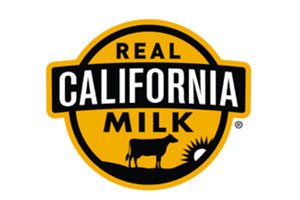
Survey Says 86% of US Adults Prefer Dairy Milk
A new Morning Consult national tracking poll of 2,200 Americans points to a number of revealing consumer preferences for milk and related beverages. When given the option to choose among whole, reduced fat 2%, low fat 1%, skim, other (almond, soy, oat, other plant-based, lactose-free), or “do not consume” milk, respondents overwhelmingly chose 2% and whole milks because they believe they are most nutritious for themselves and their families. Further, 86% of U.S. adults prefer dairy milk over “other” beverages, including plant-based beverages.
Additionally, by a margin of more than 2-1, U.S. adults say it’s important to offer low-fat flavored milks with school meals; and by a 3-1 margin, U.S. adults say it’s important to offer 2% and whole milk with school meals. The poll was conducted by Morning Consult in partnership with the International Dairy Foods Association (IDFA).
Poll Results
Here are 8 key findings:
1. A whopping 67% of adults across key demographics believe 2% and whole milk are the most nutritious types of milk. Thirty-six percent of adults believe 2% milk is the most nutritious, while 31% believe whole milk is the most nutritious.
2. At least 86% of adults prefer dairy milk compared to 10% who prefer “other” including plant-based beverages and lactose-free milk.
3. Strong opinions about offering flavored milk in schools vastly outweigh strong opinions against. Half of the adults believe it is important that the public school their child attends offers low-fat flavored milk with school meals, while just 22% believe it is unimportant. Twenty-nine percent have no opinion.
4. Adults feel similarly about fuller-fat milk with school meals—by a 3-1 margin, U.S. adults say it’s important to offer 2% and whole milk with school meals: 53% believe it is important that milks like 2% and whole are offered in schools, while just 18% feel it is unimportant. Currently, only low fat 1% and skim milks are allowed in schools.
5. Overall, more women than men believe it is more important that their children have access to fuller-fat and flavored milks in school.
6. Forty-two percent of SNAP participants prefer whole milk for themselves or their families. SNAP participants also report that they believe whole milk is the most nutritious (46%), the only demographic to do so. Of the 2,200 respondents, 336 self-identified as SNAP participants.
7. Respondents with incomes under $50,000 (inclusive of 336 SNAP and 115 WIC participants, respectively, who self-identified) believe more strongly than those with higher incomes (above $50,000) that fuller-fat milks are most nutritious and prefer offering these options as well as low-fat flavored milks in schools for their children.
8. Variety is key: More than three-quarters (77%) of adults found it important to have a variety of options to choose from when purchasing types of milk.








